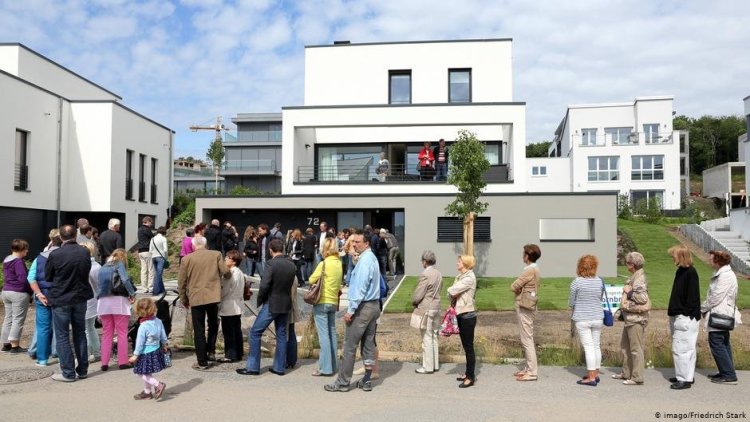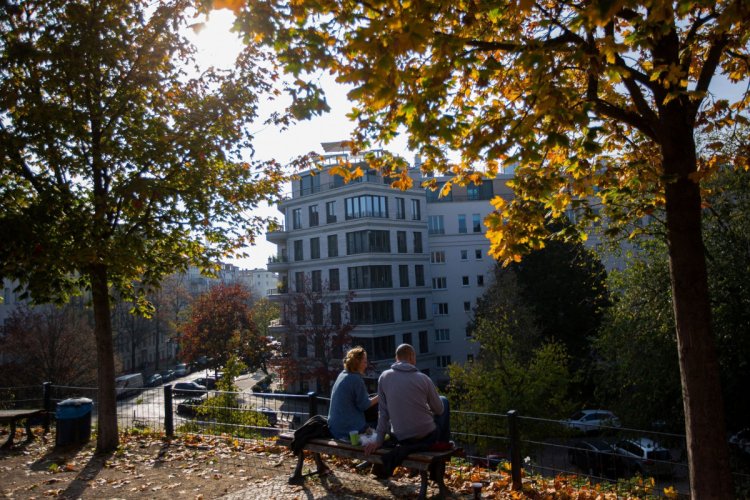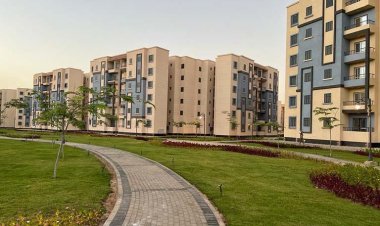Long queues for one apartment... exacerbating the housing crisis in Germany

The housing crisis in the German capital, Berlin, worsened after the number of company bankruptcies in the construction sector increased over the past year, which led to the disruption of work on a large number of projects.
The intensification of the crisis arose with high interest rates, which resulted in an increase in the cost of borrowing and a decrease in demand following a significant increase in the prices of building materials, but renters are the most affected compared to unit owners.
Search for accommodation
On Berlin's wide streets, advertisements for desperate renters looking for housing have become a common sight and long lines for apartment viewings have become eye-catching despite rents that have far exceeded salaries in recent years.
In the German capital, where cheap and plentiful apartments have been a magnet for artists and young professionals for a decade, the vacancy rate is now less than 1%, according to what Reuters reported today, Thursday, November 16, 2023.
Reuters says that the local government stated that Berlin has enough space to build more than 100,000 apartments, but there is no indication that the housing crisis sweeping the city will subside.
Real estate crisis
Projects were halted in Berlin, after major companies that were implementing housing units, such as Project Amobiline, which was in charge of building units, announced their bankruptcy last summer, affected by the real estate crisis that has been shaking Germany since, leaving hundreds of buyers anxious and confused.
Last month, German Chancellor Olaf Scholz invited specialists in the construction sector to a meeting in Berlin aimed at reactivating construction workshops, while the country is suffering from a major housing shortage, but the sector’s conditions have not improved until now.

It cannot be denied that the real estate sector in Germany has benefited for many years from low interest rates as a result of the generous monetary policy of the European Central Bank, which subsequently had an impact on the countries' central banks. Demand was great and construction projects doubled in major German cities.
But the European Central Bank was forced to raise interest rates significantly to combat inflation, which led to a decline in demand for credit, real estate prices for sale, and project profitability.
According to the Financial Times, the real estate market is slowing across Europe, but Germany is the most affected, with property prices falling year-on-year by 6.8% in the first quarter of 2023, compared to a slight increase of 0.4% in the entire euro zone.

Building materials
At the same time, real estate developers face a major dilemma represented by the high cost of building materials that occurred following the Corona pandemic and then the Russian-Ukrainian crisis.
About a month and a half ago, Fonovia, the leading German company in the real estate sector, decided to freeze the construction of 60,000 housing units, and one in every five real estate companies announced the cancellation of construction projects last August, with about 11.9% of them facing financing difficulties, according to a recent study conducted by the I Institute. FO Economic Research.
In Berlin, customers who purchased residential units in the Project Ammobilien building, located in the central Prenzlauer Berg district, paid half their value in advance.


 Shrouq
Shrouq 












